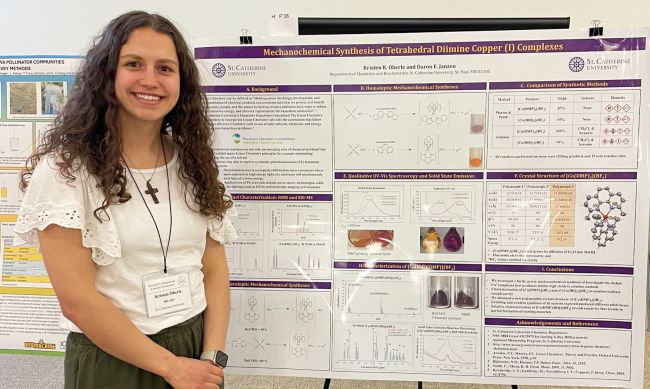Chemistry and Biochemistry

Chemistry and Biochemistry
Hands-on, Practical Approach to Chemistry in the Lab and the Classroom
Through lab research experiences, training in green chemistry principles, and use of modern instrumentation, we prepare chemistry majors for a broad range of careers including medical school, graduate school, and industrial careers.
Work Collaboratively in Our Modern Laboratories with State-of-the-Art Instrumentation
St. Catherine University's chemistry department offers three different major tracks: an American Chemical Society (ACS)-approved concentration, a core chemistry concentration, and a biochemistry concentration.
At St. Kate's, you will have the opportunity to work collaboratively in our modern laboratories with state-of-the-art instrumentation. Our laboratories feature more than a half-million dollars’ worth of instrumentation, including NMR, HPLC, X-ray crystallography, and mass spectrometry.
You will gain hands-on experience using this equipment to solve problems in chemistry. You will also learn to propose new ways to investigate problems, complete experiments, and analyze data.
In addition to your coursework, you will have the opportunity to participate in student-faculty collaborative research projects and present the results of your research at local, regional, and national meetings of the American Chemical Society, the Biophysical Society, and the Materials Research Society.
All students in the chemistry program are trained in green chemistry and toxicology as part of the department's pledge to the Beyond Benign Green Chemistry Commitment. This training will prepare you for a career in chemistry that is both environmentally responsible and safe.
Apply for Admission
Application requirements, deadlines, and instructions.
Financial Aid
Apply for aid from federal and state governments, University grants and scholarships, and educational loans.
Transfer Students
Find out how your courses will transfer with a free custom transfer evaluation.
International Students
You are welcome here.





